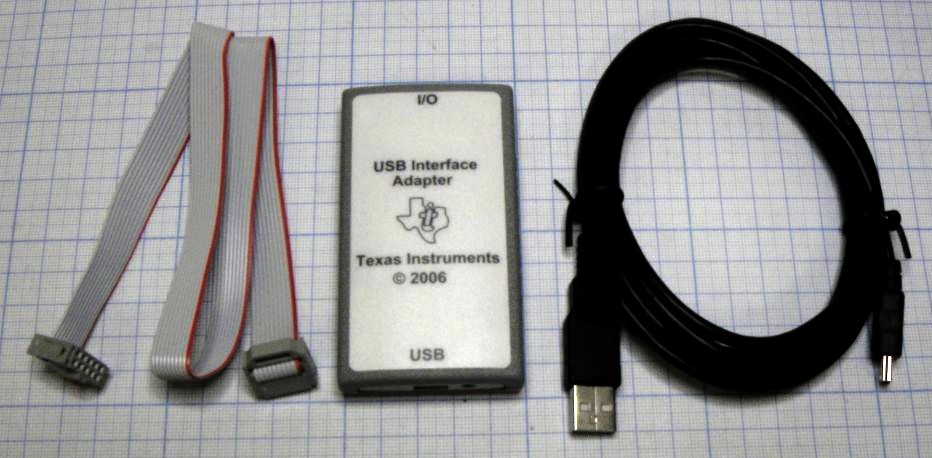USB Interface Adapter EVM Texas Instruments USB-TO-GPIO
This EVM serves as an interface adapter or a bridge between a host PC (IBM compatible) and one or multiple slave devices via a standard type-A to mini-B USB cable.
Detailed Description
The communication between the USB interface adapter and the host PC is via USB, while the communication between the USB interface adapter and the slave device(s) is via an inter-integrated circuit (I²C), SMBus, PMBus and/or general-purpose inputs/outputs GPIOs. The bridge converts communication transactions between the USB and serial protocol.

Features
- Supports master mode I²C, SMBus or PMBus as well as GPIO.
- Supports USB1.1 full speed at 12 Mbit/s. The USB interface adapter is recognized by the host as a generic human interface device (HID), so no proprietary USB or HID driver is needed. Therefore, the USB interface adapter can be treated as a USB plug-and-play device.
- Selects different clock speeds (either 100 kHz or 400 kHz) for I²C, PMBus, or SMBus communications.
- Configures different pullup resistors for clock, data and ALERT signals (including open-drain).
- Supports flexible I²C read or write transactions (specify raw data, instead of device address, command, etc.) .
- Includes .NET DLL for supporting Windows .NET GUIs using the adapter.
- No Windows dependencies other than the Microsoft .NET Framework version 2.0.
In order to operate this USB interface adapter, the following items are required:
- USB interface adapter in an enclosure
- Standard type-A to type-mini-B (5-pin) USB cable
- 10-pin ribbon cable with connectors on both ends
Other Names:
USBTOGPIO, USB TO GPIO
